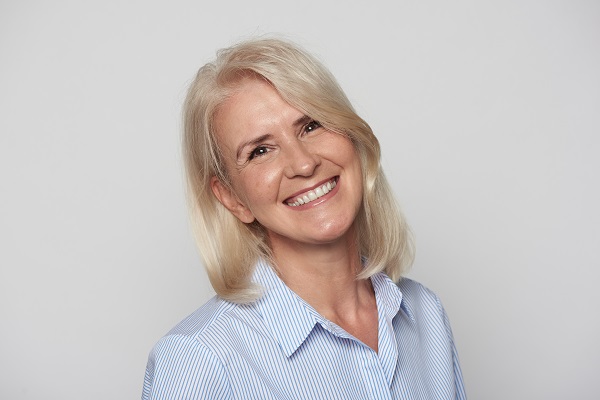Breast Cancer Awareness: A Comprehensive Guide
Breast cancer, a topic close to the hearts of many, affects millions of lives worldwide. With October being Breast Cancer Awareness Month, it's the perfect time to delve into the realms of cancer awareness in Miami - from prevention to treatment, support, research, and the campaigns that bring it all together.
In this article, we'll explore every facet of breast cancer awareness in Miami, striving to empower you with knowledge and understanding, while spreading awareness that can make a difference in countless lives.
Breast Cancer: The Basics
Breast cancer is a formidable adversary, a disease that can affect both women and men. It occurs when abnormal cells in the breast grow uncontrollably, forming a lump or tumor. This malignant growth has the potential to spread to other parts of the body, making early detection and treatment vital.
Breast Cancer Awareness
Awareness is the cornerstone of combating this disease effectively. It's about disseminating information, raising funds, and promoting early detection. With awareness comes empowerment, and with empowerment comes the potential to save lives.
Breast Cancer Prevention
While some risk factors, such as age and genetics, are beyond our control, there are steps everyone can take to reduce their risk. Lifestyle choices, such as maintaining a healthy weight, regular exercise, and limiting alcohol intake, play a pivotal role in prevention.
Early Detection of Breast Cancer
Early detection is the best defense against breast cancer. Routine breast self-exams and clinical breast exams by healthcare professionals are crucial. However, the gold standard for early detection is mammography. Starting regular mammograms at the recommended age can significantly increase the chances of detecting breast cancer at its earliest, most treatable stage.
Support for Breast Cancer Patients
A breast cancer diagnosis can be emotionally and physically challenging. Support networks, both from healthcare providers and support groups, are crucial in helping patients navigate their journey. Emotional support, access to information, and a caring community can make a significant difference in the lives of those affected.
Breast cancer in women
It is one of the most common forms of cancer among women worldwide. While breast cancer can occur at any age, the risk increases with age, and it is more commonly diagnosed in women over 50.
Here are some key points about breast cancer in women:
1. Several factors can increase a woman's risk of developing breast cancer, including age, family history, inherited gene mutations (e.g., BRCA1 and BRCA2), personal history of breast cancer or certain non-cancerous breast diseases, hormonal factors (such as early menstruation or late menopause), exposure to ionizing radiation, and lifestyle factors (such as alcohol consumption and lack of physical activity).
2. Common signs and symptoms of breast cancer in women include the presence of a breast lump or mass, changes in breast size or shape, skin changes on the breast (e.g., dimpling or redness), nipple discharge (other than breast milk), and nipple changes (e.g., inversion or retraction).
3. Screening: Early detection of breast cancer can significantly improve the chances of successful treatment. Mammography is the primary screening tool for breast cancer. We encourage women to initiate regular mammograms typically between the ages of 35 and 50 and to conduct regular breast self-exams.
4. If screening or symptoms raise suspicion of breast cancer, healthcare providers may perform additional diagnostic tests like breast ultrasound, MRI, and biopsy to confirm the diagnosis and establish the cancer's stage.
5. Staging: Healthcare professionals categorize breast cancer into stages (0 to IV) by assessing the tumor's size, involvement of lymph nodes, and any spread to distant organs." Staging helps guide treatment decisions.
6. Treatment options for breast cancer in women depend on the stage and characteristics of the cancer but may include surgery (lumpectomy or mastectomy), radiation therapy, chemotherapy, hormone therapy, targeted therapy, and immunotherapy.
7. The prognosis for breast cancer varies widely based on the stage at diagnosis and other factors. Advances in early detection and treatment have improved survival rates, and many women with breast cancer can lead long and healthy lives after treatment.
8. Support groups, counseling, and resources are available to help women and their families cope with the physical and emotional challenges of breast cancer.
Breast Cancer Research
The field of breast cancer research continues to evolve, with scientists and researchers dedicated to finding new treatments, understanding the disease better, and improving outcomes. Ongoing research is essential for developing targeted therapies and improving survival rates.
Breast Cancer Treatment
The diagnosis of breast cancer can be overwhelming, but there are numerous treatment options available, depending on the stage and type of cancer. These may include surgery, chemotherapy, radiation therapy, hormonal therapy, and targeted therapies. A multidisciplinary approach involving a team of medical professionals ensures the best possible care and treatment plan tailored to the individual.
Breast Cancer Care
Comprehensive breast cancer care extends beyond medical treatment. It includes holistic care that addresses the physical, emotional, and psychological well-being of patients. Supportive care services, including counseling, physical therapy, and nutrition guidance, are essential components of breast cancer care.
Breast Cancer Campaigns in Miami
Breast cancer touches countless lives in Miami, affecting patients, families, and communities. Prominent organizations collaborate with healthcare providers to combat breast cancer. Miami hosts awareness walks that unite communities, raise funds, and support survivors. The city's campaigns prioritize outreach and provide resources, including mammograms and education.
October sees Miami, along with the world, turning pink to promote early detection and support. In outreach and support services in Florida, we consider the diverse population.
Emotional and practical support, including counseling and navigation assistance, is available. Fundraisers support research, patient care, and education through events like charity runs.
Breast Cancer Awareness Month
October is not just about falling leaves and pumpkin spice; it's also Breast Cancer Awareness Month. It's a time when the world turns pink to support those affected by breast cancer and to encourage early detection and prevention.
Breast Cancer Impact
It affects individuals physically, emotionally, and psychologically, often requiring aggressive treatments and causing side effects.
Emotional distress, strained relationships, and economic burdens can affect families. Societally, breast cancer is prevalent, driving awareness campaigns, fundraising, and research. High costs associated with treatment emphasize the need for financial support.
Advocacy and research initiatives contribute to improved care. Breast cancer survivors play a vital role in inspiring hope and offering support to others. Understanding and addressing these multifaceted impacts are crucial in breast cancer care and support.
Breast Cancer Screening
Regular breast cancer screening is essential for early detection. Mammograms, clinical breast exams, and breast self-exams empower individuals to take control of their breast health.
Why Breast Cancer Screening Matters
Breast cancer can often go unnoticed in its early stages, making it crucial to actively seek out opportunities for early detection. Breast cancer screening is the cornerstone of this effort.
It involves a series of specialized tests and examinations aimed at identifying breast cancer before symptoms become apparent. Early detection significantly improves the chances of successful treatment and positive outcomes.
Meet Dr. Alonso
At the heart of Life Radiology's breast cancer screening in Miami program is the expertise and dedication of Dr. Alonso. With years of experience and a commitment to patient care, Dr. Alonso leads a team of professionals who are passionate about women's health and breast cancer prevention.
The Importance of Mammography
Mammography is the gold standard in breast cancer screening. It involves using X-ray technology to capture detailed images of breast tissue.
These images, known as mammograms, can reveal abnormalities such as tumors or suspicious masses that may be indicative of breast cancer. Mammography is a painless procedure and plays a central role in early detection.
State-of-the-Art Technology
Our cutting-edge machines provide clearer images with reduced radiation exposure, enhancing both accuracy and patient comfort.
When to Start Screening
The age at which individuals should begin breast cancer screening varies depending on factors such as family history and personal risk factors.
In line with established guidelines, Life Radiology works with patients to determine the most appropriate screening schedule tailored to their unique circumstances.
The Comprehensive Screening Process
Our breast cancer screening process at Life Radiology is comprehensive and patient centric. It includes a discussion with Dr. Alonso or another experienced healthcare provider to assess risk factors, followed by a mammogram.
A Compassionate and Supportive Environment
At Nuceria Health, we understand the emotional aspect of breast cancer screening. Our caring and empathetic staff members provide a comfortable and supportive environment. We prioritize patient education, ensuring that you fully understand the screening process and its significance.
Access to Results and Next Steps
If any worrisome results are discovered, Dr. Alonso and the team will provide guidance on the subsequent actions, which could involve additional diagnostic assessments or consultations with breast specialists.
Peace of Mind Through Early Detection
The goal of breast cancer screening at Life Radiology is to offer peace of mind through early detection. By proactively seeking out screening opportunities and collaborating with our experienced team, you take a vital step in safeguarding your breast health and overall well-being.
Scheduling Your Breast Cancer Screening
We encourage you to take control of your breast health by scheduling a screening at Life Radiology today. Whether you are due for a routine mammogram or have concerns about breast cancer, our team is here to provide expert guidance, compassionate care, and state-of-the-art technology to support you on your journey to early detection and peace of mind.
Breast Cancer Survivors
Breast cancer survivors are individuals who have completed treatment for breast cancer. They may have undergone surgery, radiation therapy, chemotherapy, hormone therapy, or a combination of these treatments. Survivors can range from those with early-stage breast cancer to those with advanced or metastatic disease.
After treatment, survivors require ongoing follow-up care to monitor their health, address potential side effects, and detect any signs of recurrence early.
Physical and emotional challenges, such as fatigue, pain, body image issues, anxiety, and depression, may persist post-treatment. Supportive care services, including counseling, support groups, and survivorship programs, help survivors cope with these challenges. Many survivors become advocates for breast cancer awareness, research, and patient rights.
Some survivors manage metastatic breast cancer, enabling them to lead fulfilling lives. Each survivor's journey is unique, and their needs and experiences vary.
Support from healthcare providers, loved ones, and the community is crucial in helping survivors maintain their well-being after breast cancer treatment. Ongoing research continues to improve outcomes and treatment options for those affected by breast cancer.
In closing, breast cancer is a formidable foe, but it can be overcome with knowledge, awareness, and unity.
By understanding the basics of breast cancer, embracing prevention strategies, supporting early detection, and championing research and care, we can make a meaningful impact in the lives of those affected by this disease.
As Breast Cancer Awareness Month approaches, let's come together, raise our voices, and work towards a brighter, cancer-free future for all.
Request an appointment here: https://mynuceria.com or call Nuceria Health at (305) 398-4370 for an appointment in our Miami office.
Check out what others are saying about our services on Yelp: Wellness Center in Miami, FL.







